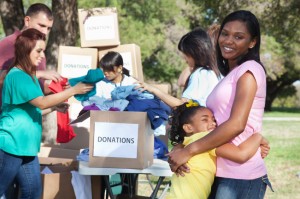On Being Vulnerable: Part I

[This blog contains excerpts from an interview with Dr. Robert Firestone by Fred Branfman, political activist and author of Voices from the Plain of Jars]
Vulnerable: “A weak position, defenseless, helpless, exposed, at risk, in danger”
Fred Branfman: In our culture the idea of being vulnerable is associated with being fearful, anxious, and weak. For example, politicians and business leaders tend to project an air of invulnerability. In contrast, one of your central ideas is that vulnerability is an adaptive and desirable state to live in. I’d never thought about it that way before. What exactly do you mean by the word “vulnerable”?
Robert Firestone: It’s a complicated issue, but looking at it existentially, we only have one life to live. The essential idea is to live it as fully as possible, to experience all of your emotions, all your perceptions, all your thoughts, all your ideas. But when we’re damaged, we block out a lot of our potential to realize the fullness of our existence. Early in life, we build defenses against interpersonal pain, separation anxiety, and existential fears. Yet the very defenses that once protected us as children and were appropriate to our survival emotionally are no longer appropriate and they limit our life experience as adults.
So when we talk about being vulnerable, we’re talking about living without defense, or with minimal defense, that is, taking a chance, going after everything we believe in, everything we desire. Living the fullness of our existence and taking our lives seriously.
FB: But I’ve heard a lot of people say, “When I’m fully alive, I’m climbing mountains, I’m flying airplanes, and I’m feeling invulnerable.”
RF: When I’m talking about being vulnerable, I’m talking about being alive in spirit rather than being blunted or damaged in that spirit by psychological defenses. A funny way to put it is that you have to be a sucker, a fool. When you think about death, the odds are worse than in Vegas. The odds are totally against you and yet you have to choose life in the face of that alternative. In a sense, you have to be a fool to invest in life, because you’re investing in something you can’t keep.
So what I recommend is that you be the fool; that you take a chance on life, that you invest fully in people, that you invest your trust in other people. You live according to the philosophy that “it’s better to love and lose than to never love at all.” Paradoxically, to live with that philosophy is more adaptive.
First of all, in leading an open, honest life and taking chances, you’re more likely to succeed in meeting your goals. And secondly, let’s say you fall in love with someone and offer them everything, and they reject you. You’ve been a fool from a conventional standpoint but, in reality, you’ve had your life and, in the end, you’re still adaptive.
You can afford to love and be rejected; that’s something people don’t fully realize. But you’re strong enough, you’re not a child anymore. Your defenses are based upon a child’s outlook. But now that we’re adults, we can handle almost any eventuality in life. We don’t need to be guarded; and not because everything will work out well. It’s not a Pollyannaish point of view. We can afford to be in a situation where it doesn’t work out well because we still survive as long as we have our feelings. We don’t need defenses to cope.
FB: But when we’re vulnerable, aren’t we also fearful, anxiety-stricken, powerless? Don’t we also feel weak?
RF: When we’re vulnerable, it simply means that we’re capable of pursuing our goals, wants, and intentions, and we’re able to deal with the consequence on a feeling level. And that includes a variety of feelings, some of which are frightening, some of which are very joyful and exciting—it’s a wide range of experience. If you live fully, there will be much joy and a certain amount of pain, too. So we’re not trying to protect against feeling. What I’m saying is that you can afford to feel and, in a feeling state, you’re better able to cope effectively with your life.
FB: I’ve heard you say that the key to being vulnerable is a willingness to tolerate emotional pain, in the pursuit of your life…
RF: …as well as joy, as well as positive things, and love, too. All require vulnerability. People find it difficult to tolerate love, they tend to push it away and regulate the distance between themselves and other people. That’s part of their defense. That way they’re not risking as much emotionally; they are not willing to be hurt again. But it never works and ultimately they will be hurt in love relationships, by the loss of their loved ones.
FB: To what extent does being vulnerable involve reaching out to others, asking people for help, to be supported by others rather than trying to do it all on your own?
RF: Part of being vulnerable is asking for what you want, stating it cleanly and directly, turning to others appropriately. It’s not being totally self-sufficient, which is what our critical voices tell us. They tell us to be self-sufficient or pseudo-independent, such things as “Don’t rely on other people, you can’t trust them, etc.”
Being generous in response to what someone else needs, that’s being vulnerable, too, because you can get hurt offering kindness, affection, or love. People often get hurt in reaching out to others and by being generous and giving. So being vulnerable is being willing to be hurt, either way, by asking for or by offering love and affection.
I consider vulnerability as being fully open to the experience of living. A major goal in my therapeutic approach is to help clients lead adult, autonomous, adventurous lives and experience the full range of their emotions.










Leave a Reply
You must be logged in to post a comment.